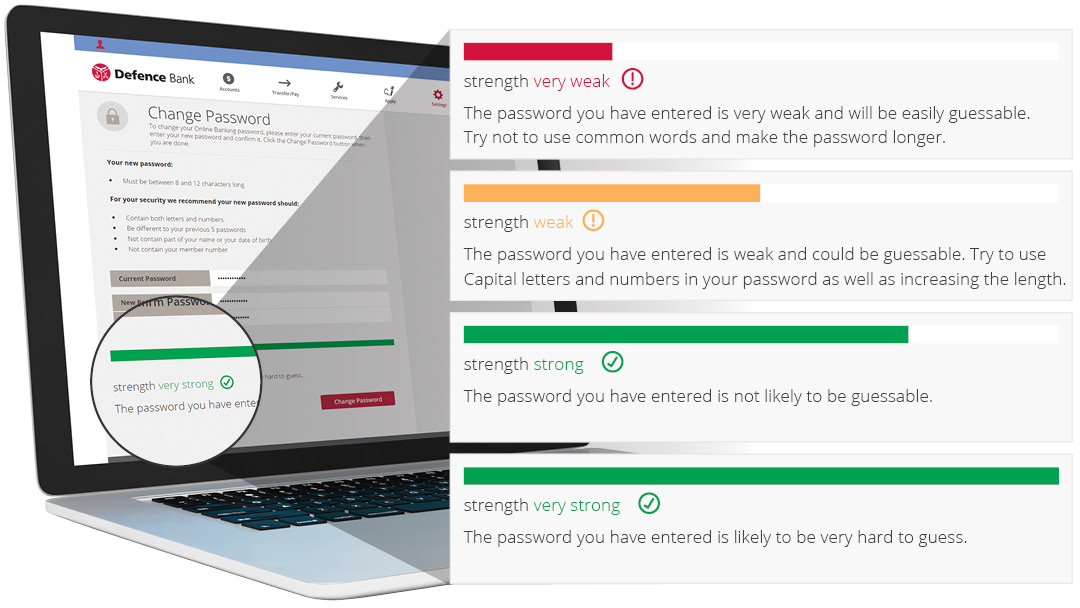In today’s digital age, passwords have become the first line of defence against cyber-attacks and hackers.
Yet, despite the increasing prevalence of data breaches, many Australians continue to use weak and easy-to-crack passwords when signing up for online banking or other e-commerce services.
A report compiled by cyber security company Nord Security in 2021 highlighted a list of common passwords in Australia. These common passwords are easy to hack and shouldn’t be used!
Top 20 passwords in Australia 2021.
These are the top 20 most common passwords in Australia:
- 123456 - < one second to crack - used 308,483 times
- password - < one second to crack - used 191,880 times
- lizottes - three hours to crack - used 98,220 times
- password1 - < one second to crack - used 86,884 times
- 123456789 - < one second to crack - used 75,856 times
- 12345 - < one second to crack - used 69,344 times
- abc123 - < one second to crack - used 68,434 times
- qwerty - < one second to crack - used 67,130 times
- 12345678 - < one second to crack - used 37,675 times
- holden - two minutes to crack - used 30,844 times
- charlie - < one second to crack - used 30,527 times
- 1234567 - < one second to crack - used 28,059 times
- qwerty1 - < one second to crack - used 27,088 times
- 111111 - < one second to crack - used 26,481 times
- dragon - < one second to crack - used 26,473 times
- 1234 - < one second to crack - used 26,145 times
- 1234567890 - < one second to crack - used 23,511 times
- qwerty123 - < one second to crack - used 23,409 times
- australia - six seconds to crack - used 21,666 times
- princess - < one second to crack - used 21,660 times
Stronger passwords to beat the hackers.
To produce stronger passwords and ward off the hackers, it is essential to follow specific steps. These steps include:
- Use a complex password. A more complex password will contain at least 12 characters and various upper and lowercase letters, numbers, and symbols.
- Avoid using easily guessable information. This includes using your name, date of birth, or pet’s name as your password. Instead, use a combination of random words or phrases that are difficult to guess.
- Use a unique password for each account you have. By making your passwords long and random, you will help prevent a data breach in one account from compromising all your other accounts.
- Change your passwords regularly. This simple step will reduce the risk of your password being compromised over time.

Some valuable resources to keep you safe online.
To learn more about protecting you and your money from cybercrime, visit the scams, fraud and security section of Intel - the Defence Bank blog. You’ll find a range of useful articles designed to keep you up to date on the latest scams and what you can do to keep yourself safe.
Other valuable online resources outlining ways to combat scams and additional ways you can take to limit the risk of fraud include:
- Scamwatch - https://www.scamwatch.gov.au/
- MoneySmart - https://moneysmart.gov.au/protect-yourself-from-scams/
- Australian Security Centre - https://www.cyber.gov.au/protect-yourself/
Important note: This information is of a general nature and is not intended to be relied on by you as advice in any particular matter. You should contact us at Defence Bank to discuss how this information may apply to your circumstances.




